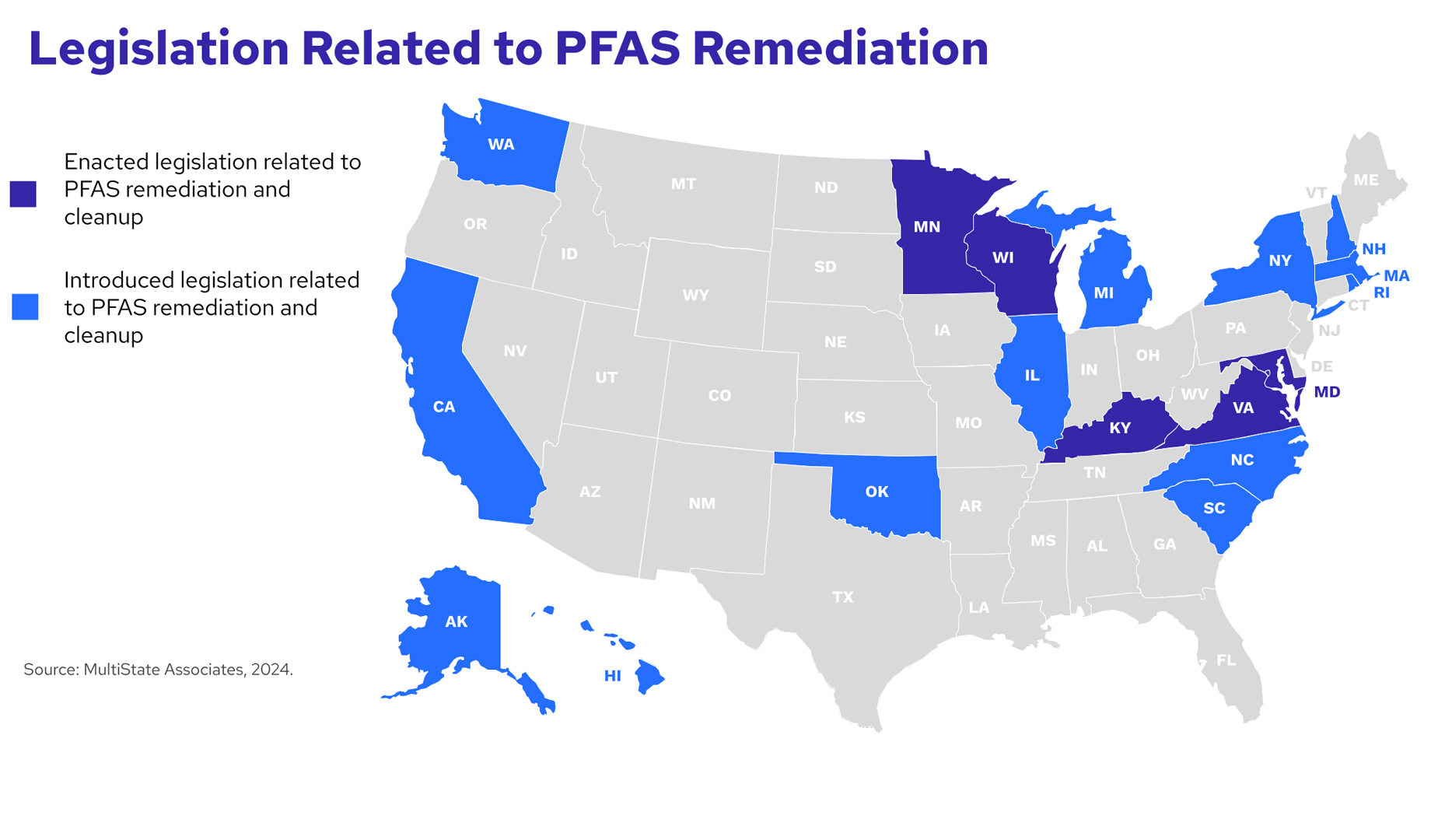The effort to clean up a collection of “forever chemicals” — known as perfluoroalkyl and poly-fluoroalkyl substances (PFAS) — has been a hot topic in state legislatures in recent years. Their potential impact on human health and the environment has prompted some lawmakers to draft legislation that shifts the burden of cleanup to not just producers of products that contain PFAS, but also other supply chain participants such as retailers and even property owners in some cases.
This month, Wisconsin Governor Tony Evers (D) vetoed legislation (WI SB 312 and WI AB 312) that would have directed $125 million towards several PFAS cleanup programs, including one titled the “innocent landowner grant program.” Republican lawmakers, who failed to override the Governor’s veto, claimed programs such as the innocent landowner grant are necessary to help businesses cover the cost of PFAS contamination on their properties present through no fault of their own. During floor debate on the bill, Senator Eric Wimberger (R) cited an apartment owner being held responsible by the Wisconsin Department of Natural Resources for cleaning up PFAS found in the soil — originally put there by a Georgia Pacific papermill in 1952.
Oklahoma lawmakers sent similar PFAS remediation legislation (OK HB 2305) to the Governor’s desk in May that gives protections to certain protected passive receivers of PFAS, such as property owners. The exemption shall only apply, though, if the passive receiver manages, transports, conveys, treats or disposes of PFAS, in compliance with state and federal laws.
During this year’s legislative session, a total of 35 bills have been introduced in 15 states related to PFAS cleanup and remediation. Most legislation addressing PFAS either directs a portion of state funds to be used for cleaning up or developing PFAS monitoring and testing protocols. For example, an enacted Kentucky bill (KY HB 6) appropriates $3 million for the next two fiscal years for analysis of PFAS in the environment, while Maryland lawmakers enacted (MD HB 1153 and MD SB 956) that directs the state’s Department of the Environment to monitor and identify users of PFAS.
Recent action at the state level on PFAS cleanup comes as the Environmental Protection Agency (EPA) released its long-awaited final rule on designating PFAS as “hazardous substances” under the Comprehensive Environmental Response, Compensation, and Liability Act (CERCLA). ICSC has opposed the rule, believing that CERCLA is not the right regulatory tool to address this important issue and that further clarifications are needed.
CERCLA imposes broad legal liabilities that can impact nearly anyone who interacts with a regulated substance whether they knew they were doing so or not. This change, which takes effect this summer, would allow the EPA to compel passive receivers to remediate releases of PFAS through the specific CERCLA enforcement provisions. Furthermore, many states include CERCLA hazardous substances under their cleanup statutes, meaning these states will now be able to require remediation of PFAS under state law.
